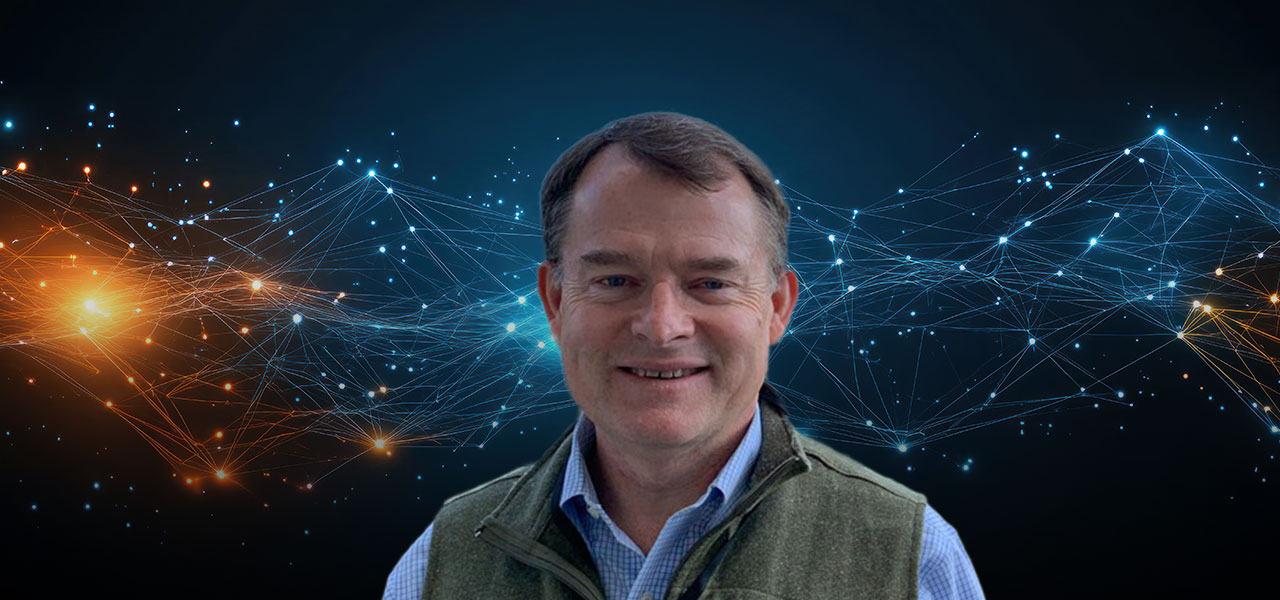
De repartidor de periódicos a plataforma: Una conversación con Chris Gaffney sobre el futuro de la cadena de suministro

Chris Gaffney no se tropezó con el liderazgo de la cadena de suministro; lo consiguió. Literalmente. A la temprana edad de 10 años, Chris se levantaba antes del amanecer para repartir el Washington Post con su hermano, tirando de un carro por los barrios mientras aprendía de primera mano sobre niveles de servicio, variabilidad de la demanda y optimización de rutas (sin llamarlo así). Ese trabajo de la infancia sentó las bases para una notable carrera en el liderazgo de la cadena de suministro en dos de las marcas mundiales más emblemáticas, Frito-Lay y Coca-Cola, y ahora en el mundo académico en Georgia Tech, donde está ayudando a formar la próxima generación de líderes de la cadena de suministro.
Me senté con Chris en ketteQuest 2025 en su ciudad natal de Atlanta para hablar sobre los retos y oportunidades más significativos en la cadena de suministro, la importancia crítica de la velocidad en la planificación, y por qué cree que ketteQ está en una posición única para traer de vuelta lo que él llama el "juego ganable".
P: ¿Qué retos de planificación le han marcado más a lo largo de su carrera?
R: Uno de los mayores fue cuando dirigí la planificación a medio plazo en Coca-Cola. Intentamos ajustar correctamente el inventario estacional, pero nos encontramos con un problema de latencia. Era demasiado tarde cuando teníamos los datos, realizábamos el análisis y socializábamos las recomendaciones: la temporada ya había pasado. Se convirtió en un bucle frustrante de buen trabajo que no se tradujo en un impacto oportuno. Se puso de manifiesto la importancia de la rapidez y la capacidad de respuesta en la planificación. El mundo no espera.
P: ¿Cuál es el mayor reto al que se enfrentan hoy las cadenas de suministro?
R: Las grandes organizaciones siguen luchando por alinear e integrar diferentes puntos de vista de clientes, proveedores y activos internos, así como por crear una imagen coherente para la toma de decisiones. Incluso las cadenas de suministro más sofisticadas luchan con esto. Es difícil tener en cuenta toda la variabilidad y tomar decisiones empresariales acertadas. Y el reto se agrava cuando los sistemas presuponen estabilidad en un mundo que es cualquier cosa menos eso.
P: ¿Cómo han cambiado los manuales de la cadena de suministro ante el aumento de las perturbaciones?
R: La mayoría de las empresas siguen funcionando con una cadencia de planificación estructurada: ciclos mensuales, revisiones trimestrales, planificación anual. Pero el mundo ya no se mueve por ciclos. Hay que ser capaz de tomar una buena decisión hoy, porque mañana puede ser demasiado tarde. Toda la memoria muscular de la planificación tradicional tiene que cambiar hacia la capacidad de respuesta en tiempo real, utilizando una tecnología que permita tomar decisiones rápidas con el máximo grado de confianza.

P: ¿Qué tecnologías o capacidades le entusiasman más?
R: La capacidad de ejecutar miles de escenarios rápidamente y a gran escala cambia las reglas del juego. Durante la mayor parte de mi carrera, teníamos suerte si podíamos ejecutar uno o dos escenarios con las herramientas que teníamos. Y sabíamos que eso no era suficiente. Entendíamos que podíamos enfrentarnos a una amplia gama de resultados de demanda y costes, pero simplemente no teníamos la velocidad o la capacidad para explorarlos.
Lo que me entusiasma ahora es ver plataformas como ketteQ, creadas específicamente para esta nueva realidad. La idea de poder modelizar miles de posibilidades, no sólo un puñado, y hacerlo realmente a tiempo para tomar una decisión empresarial significativa... es poderosa. Es poderosa. Es una de las razones por las que me atrajo lo que está haciendo ketteQ. Han diseñado un sistema que puede procesar ese nivel de complejidad sin ralentizar a los planificadores. Este tipo de capacidad escalable ya no es un lujo; se está convirtiendo en algo esencial para tomar decisiones inteligentes y oportunas en el entorno actual.
P: ¿Cómo entró a formar parte del Consejo Asesor Ejecutivo de ketteQ?
R: Gestioné la red de transporte de materias primas de Frito-Lay al principio de mi carrera, a los 24 años. Tenía una flota de conductores especializada y cada viernes sabía si ganaba o perdía. Era un "juego ganable". Pero a medida que ascendía en el escalafón, esa clara línea de visión hacia la victoria se fue alejando. He pasado la segunda mitad de mi carrera intentando que los planificadores de la cadena de suministro recuperen el juego que se puede ganar. Cuando compartí esa idea con Mike (Landry), creo que realmente resonó. Eso es lo que me atrajo de ketteQ.
P: ¿Qué es lo que más le ha impresionado de ketteQ?
R: La gente. El pedigrí del equipo es excepcional, y cuentan con una profunda experiencia en el sector, una fuerte mentalidad de cliente y la voluntad de replanteárselo todo. Este bagaje les ha permitido comprender los retos actuales y construir una plataforma tecnológica impresionante. No se trata sólo de resolver los problemas de hoy, sino de crear una base que pueda evolucionar y escalar con el negocio y el caos del mundo que nos rodea.
P: ¿Cómo está revolucionando ketteQ la planificación de la cadena de suministro?
ketteQ tuvo la rara oportunidad de empezar desde cero con una construcción totalmente nueva. Es una gran ventaja. La mayoría de las plataformas intentan adaptar soluciones a arquitecturas obsoletas. ketteQ se diseñó desde el primer día para el entorno actual, aprovechando las últimas ideas y tecnologías para hacer frente a los retos modernos.
P: ¿En qué se diferencia ketteQ de otros productos de planificación de la cadena de suministro?
La plataforma ketteQ permite planificar escenarios reales a gran velocidad y escala. Esto es poco frecuente. La mayoría de las empresas se ven obligadas a incorporar herramientas de análisis de escenarios independientes, lo que crea fricciones. Con ketteQ, todo está integrado. Y como la plataforma evoluciona constantemente con las aportaciones de los clientes, usted obtiene una solución que crece con usted tanto operativa como estratégicamente.

P: ¿Cuál es el impacto de la integración de Salesforce y AgentForce de ketteQ?
La información sobre la demanda es una gran ventaja, y Salesforce se la proporciona. Si añade AgentForce, estará permitiendo que agentes inteligentes le ayuden a tomar decisiones dentro del ecosistema. No se trata de tecnología por tecnología, sino de reducir la fricción y conseguir una planificación más rápida e inteligente.
Resumen
La trayectoria de Chris Gaffney, de repartidor de periódicos a visionario de la cadena de suministro, es algo más que una apasionante historia profesional: refleja lo mucho que ha evolucionado la profesión de la cadena de suministro y todo el potencial que tiene por delante. Su creencia en el "juego ganable" subraya lo que está en juego: capacitar a las personas con las herramientas adecuadas, los datos correctos y la mentalidad adecuada para tomar decisiones seguras y basadas en el valor. Con plataformas como ketteQ que reimaginan lo que es posible -a escala, velocidad e inteligencia de escenarios-, los líderes de la cadena de suministro están mejor equipados que nunca para navegar por la incertidumbre y dar forma a un futuro más adaptable y resistente.
¿Quiere profundizar?
Vea la entrevista completa con Chris Gaffney.
Consulte otros blogs y vídeos de nuestra serie Executive Advisory Board Spotlight, en la que exploramos las ideas y predicciones que configuran el futuro de la planificación de la cadena de suministro.





